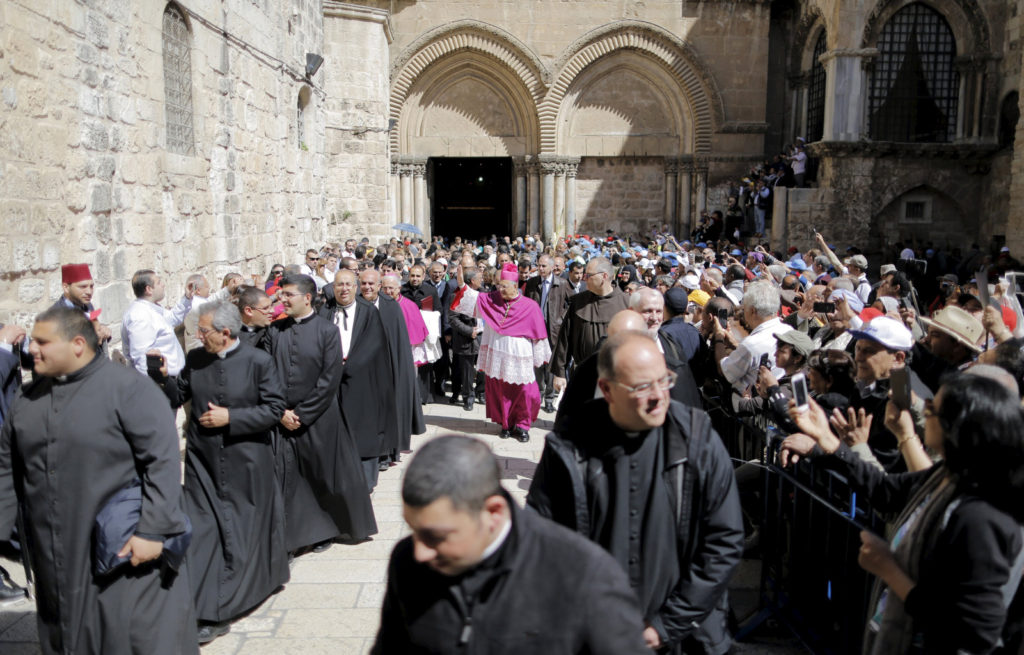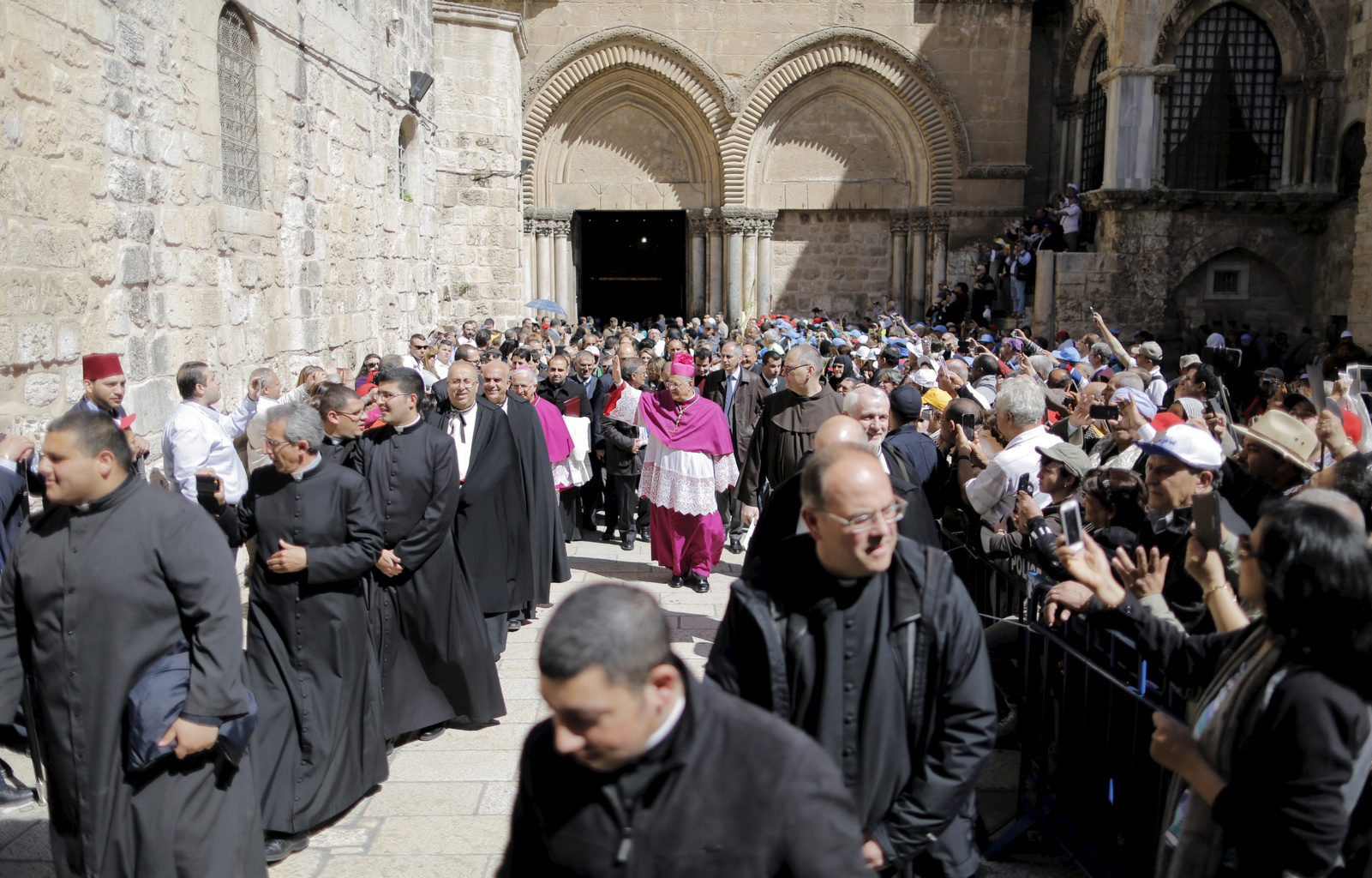
PHILADELPHIA (CNS) — Christian families in the Holy Land bear their daily suffering with hope, knowing that the cross is the cost of following Christ, said Latin Patriarch Fouad Twal of Jerusalem.
“We are a Church of Calvary, and it is something that we have to accept,” he said during a session of the World Meeting of Families in Philadelphia Sept. 25.
“Jesus says all who follow him will have to pick up their cross,” he continued. “We must take these words seriously. If we want to follow him, we have our daily cross.”
The Latin-rite archbishop of Cyprus, Israel, Jordan and the Palestinian territories contributed to a panel at the international four-day congress on the theme, “The Way of the Cross, the Way of the Heart: Suffering and the Family.”
Patriarch Twal said the causes of the suffering experienced by families in the Holy Land are many: the confiscation and occupation of lands, the Israeli separation barrier, travel restrictions, checkpoints, administrative detentions, emigration, religious fanaticism and radicalism.
“More than ever, religious fundamentalism and violence in the name of God is the worst of all our challenges,” he said.
The security barrier or wall, which separates families and parishes, is an expression of “other walls in the heart of the human being, distrust and misunderstanding,” he said.
He spoke of a parish priest whose mother died because Israeli officials did not allow her through a checkpoint for dialysis.
Recently described as a “wall of shame” by an Italian pilgrim, he said, it is “more than shameful” that “many people who come to visit don’t see the wall and don’t even want to see it.” An entire generation of Christians only know this reality, he said.
Many Christian families, however, have decided to leave. Today, only about 10,000 Christians live in Jerusalem, compared with about 250,000 Muslims and 500,000 Jews, he said.
The families that left are among the almost 20 million people worldwide today who have fled their homeland because of war, persecution and oppression, he said.
“And every day an estimated 42,000 more join the exodus,” most making their way to Europe, where there is “total confusion” about whether or not to welcome refugees, he said.
He said families in the Holy Land share struggles similar to the Holy Family, who were once refugees in Egypt. He urged meeting participants to find ways to express their solidarity and support to Christians in the Holy Land.
“But being a Church of Calvary, we don’t forget that we are a Church of resurrection, of hope, of future,” he said, noting that signs of hope exist.
“We have many wonderful committed young couples,” he said, and the seminary is filled to capacity with 35 seminarians.
Patriach Twal said Christians in the Middle East trust in the words of Jesus, that they need not be afraid, for they are not alone and Jesus is with them.
And just like Jesus on the Mount of Olives, the patriarch said, “We pray, we weep, we suffer and we wait.”
By Laura Ieraci, Catholic News Service. Follow Ieraci on Twitter: @lauraier.







